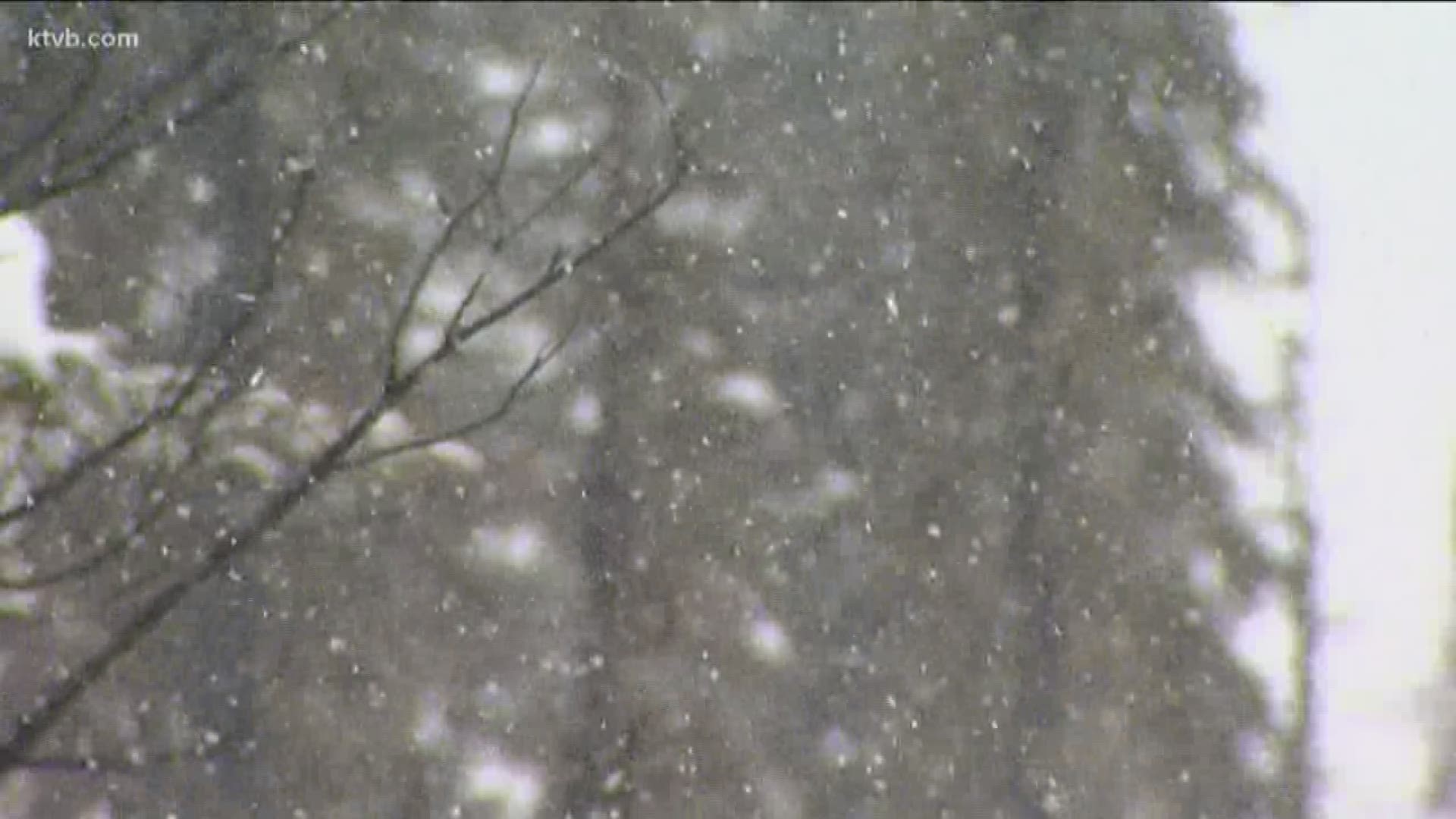BOISE, Idaho — Last week, the House Resources and Conservation Committee held a hearing on climate change and its impact on Idaho.
The Heartland Institute, an Illinois-based group that dismisses human-caused climate change, put on a presentation about climate change's effects in the Gem State.
James Taylor, the director of Arthur B. Robinson Center for Climate and Environmental Policy, told lawmakers that rising temperatures have actually helped Idaho and have increased crop production.
Taylor later told KTVB on Monday that his presentation wasn't requested but he heard there were calls for Idaho-specific data in last year's brief climate change hearings.
After Taylor's presentation, Rep. Rob Mason (D-Boise) asked, "Did you have a chance to work with any of our Idaho scientists, industry folks in Idaho... stakeholders, state departments in this state or in others, any Idaho-based stakeholders for this report, and if so, could you share who helped provide input, who helped provide information on that?"
Taylor admitted that he did not and said, "I did not directly with any Idaho folks on the ground or stakeholders."
House Minority Leader Ilana Rubel (D-Boise) then pressed Taylor further on who he talked to and asked if he had worked with scientists in Idaho who warned that global warming would have extensive and costly ramifications.
"I noted your report didn't really mention fires or snowpack. But one of the things that we have heard from Idaho scientists in recent years was that due to climate change, we've seen a 100% increase in the six of our wildfires, that seasons have lengthened by 47 days," she stated during the hearing. " But I wonder if any of that information would at all impact your conclusion that climate change has had no adverse effects on Idaho."
In order to verify Taylor's claims that climate change is helping Idaho, we took his claims to an MIT graduate and current Boise State University professor who has been researching climate in Idaho for over a decade.
"Is this true? Uh no, it is not true," said associate professor of geosciences at Boise State Dr. Lejo Flores. "In a place like Idaho where we have mountains and very diverse seasons cold winters and warm summers really is only helpful if it's snowpack and in the wintertime and so when you pair any increase in precipitation with warmer temperatures it's particularly problematic because it means that more precipitation has fallen as rain rather than snow which creates a situation where we get earlier runoff, increases the likelihood of floods and that water is ultimately unavailable for irrigation later when it's really needed by the crops."
RELATED: 3 years after 'Snowmaggedon,' the Treasure Valley experiences an abnormally dry and warm winter
While Flores says while Idaho's temperatures have increased and the state's crop yields have too, there's no relationship between the two.
"The increases in crop yields we've seen are largely due to technological innovations in the ag sector, particularly things like genetic modification of crops, better more focused application of fertilizer and herbicides and that's responsible for the vast majority of increases we've seen in crop yields," he explained.
Flores also said that a warming climate will affect snowpacks and runoffs in Idaho's mountains and there's no evidence that Idaho is seeing an increase in precipitation.
"The problem is it's getting warmer more rapidly in the mountains, particularly in the winter, which again contributes to the earlier peak in snowpack and earlier runoff," the associate professor said.
More than 90% of the peer-reviewed studies and the scientists that researched them say climate change is a human-caused problem and the mainstream scientific community almost entirely agree that burning coal, oil, and gas is causing dangerous warming.
Two Republicans called Taylor's information useful.
READ MORE ON CLIMATE CHANGE:

